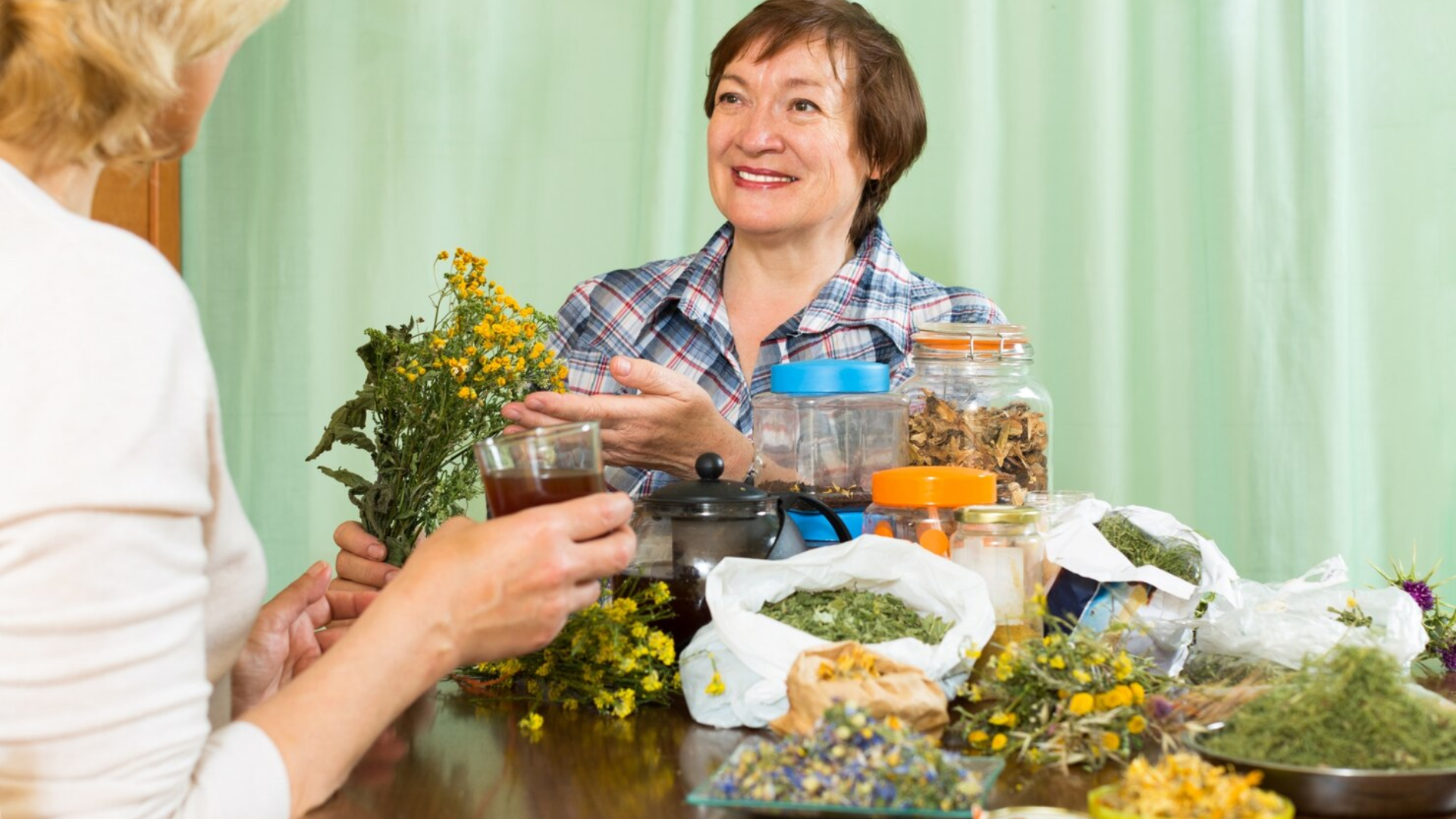Are you looking for simple, natural ways to stay healthy and feel your best? In today’s world full of chemical medicines and quick fixes, more and more people are turning back to herbal therapies, natural plant remedies that have been used for healing for thousands of years.
Herbal medicine is one of the oldest forms of healing known to humans, with evidence showing that people have used plants for health for more than 60,000 years. From the rainforests of the Amazon to the mountains of Tibet, every culture has its own traditional plant medicines that are still helping people today.
What makes herbal medicine special is its whole-body approach. Instead of just hiding or reducing symptoms like many modern treatments do, herbal therapies help your body heal naturally by finding and fixing the root cause of the problem. This gentle yet effective approach can support your mental health, balance your hormones, strengthen your immune system, and even help manage long-term pain.
The growing interest in herbal medicine isn’t just about returning to old traditions; it’s about blending ancient knowledge with modern science. Today’s herbal experts use both traditional wisdom and new research to create safe, effective treatments that can work alongside regular medical care.
In this easy-to-follow guide, you’ll explore the amazing world of herbal therapies, what they are, how they work, and which herbs can help with different health needs. Whether you’re trying to solve a specific health problem or just want to boost your overall well-being naturally, this guide will help you understand and enjoy the healing power of plants.
What Are Herbal Therapies?
Herbal medicine involves using whole plants, plant parts, or plant extracts for their therapeutic properties. Unlike pharmaceutical drugs that typically contain single isolated compounds, herbal remedies work through the synergistic effects of multiple plant constituents working together.
The Holistic Approach: Holistic herbal treatment considers the whole person rather than just isolated symptoms. This approach recognizes that physical, mental, and emotional health are interconnected and that true healing addresses all aspects of well-being.
Natural vs. Synthetic: While many modern medications are derived from plant compounds, herbal therapies use the whole plant or minimally processed plant materials, preserving the natural balance of active compounds that work together harmoniously.
Traditional Wisdom Meets Modern Science: Today’s herbal practitioners combine centuries of traditional knowledge with contemporary research to create safe, effective treatment protocols.
Historical Foundations
Ancient Origins: Archaeological evidence shows that humans have been using plants for medicine for over 60,000 years. Ancient herbal care systems developed independently across different cultures, yet many discovered similar uses for the same plants.
Traditional Systems: Major traditional medicine systems like Traditional Chinese Medicine, Ayurveda, and Native American herbalism have documented thousands of years of successful plant-based healing.
Modern Revival: After decades of relying primarily on synthetic drugs, there’s been a renewed interest in herbal medicine as people seek gentler, more natural approaches to health.
Scientific Validation: Modern research is validating many traditional uses of herbs while also discovering new therapeutic applications and mechanisms of action.
How Herbal Therapies Work
Multiple Mechanisms: Plants contain hundreds of different compounds that can work through various pathways in the body, providing comprehensive therapeutic effects.
Gentle Action: Most herbal remedies work gradually and gently, supporting the body’s natural healing processes rather than forcing dramatic changes.
Adaptogenic Properties: Many herbs are adaptogens, meaning they help the body adapt to stress and maintain balance across multiple systems.
Synergistic Effects: The combination of compounds in whole plants often produces effects that are greater than the sum of their individual parts.
Integrative Approaches to Herbal Medicine

Modern herbal therapies often work best when integrated with other natural healing modalities, creating comprehensive treatment approaches that address multiple aspects of health.
Acupuncture and Herbal Medicine
Acupuncture and herbal medicine work hand in hand to promote natural healing. While acupuncture improves the body’s energy flow and nerve function, herbal treatments provide nourishment and chemical support from within. When used together, they often bring better results than either treatment alone, especially for long-term conditions. This combination not only helps relieve symptoms but also targets the root causes of imbalance. Practitioners can also personalize these treatments to match each person’s unique body type and needs, making them gentle yet highly effective.
Functional Medicine
Functional medicine combines modern science with herbal healing to find and fix the root cause of health problems. Instead of just managing symptoms, this approach supports how organs and systems work together for total body balance. Practitioners may use lab tests to understand what the body needs and track progress over time. Herbal medicine in this system is often paired with healthy eating, exercise, stress management, and other lifestyle changes, creating a complete plan for long-term wellness.
Know more, Which is good for you Functional medicine or Acupuncture
Naturopathic Medicine
Naturopathic medicine is built on the idea of working with nature to heal the body safely and gently. It focuses on treating the root cause of illness, preventing disease, and supporting the body’s natural ability to heal. Naturopathic doctors take time to understand the whole person through exams, lab tests, and detailed health histories. Their treatments often combine herbal remedies with nutrition, physical therapies, and lifestyle guidance, all designed to restore balance and keep you healthy naturally.
Herbal Therapies for Mental Health
Mental health conditions respond particularly well to herbal therapies, which can provide gentle yet effective support for emotional well-being and cognitive function.
Depression and Mood Support
Natural Approaches: Natural medicine for stress offers alternatives or complements to conventional antidepressants, often with fewer side effects.
Multiple Mechanisms: 10 natural depression treatments may include herbs that support neurotransmitter balance, reduce inflammation, improve stress resilience, and enhance overall brain health.
Seasonal Considerations: Natural cures for seasonal depression often focus on herbs that support mood during darker months and help regulate circadian rhythms.
Individualized Treatment: Different herbs work better for different types of depression, making personalized treatment selection important for optimal outcomes.
Key Herbs for Mental Health
St. John’s Wort: Well-researched for mild to moderate depression, this herb affects multiple neurotransmitter systems and is as effective as some prescription antidepressants for certain individuals.
Ashwagandha: This adaptogenic herb helps the body manage stress while supporting mood stability and cognitive function. Research on ashwagandha and chemotherapy also shows its potential for supporting patients through cancer treatment.
Rhodiola: Another powerful adaptogen that helps improve stress resilience, mental clarity, and energy levels while supporting mood balance.
Lemon Balm: A Gentle nervine herb that helps calm anxiety, improve sleep quality, and support overall emotional well-being.
Anxiety and Stress Management
Adaptogenic Support: Adaptogenic herbs help the body maintain balance during stressful periods, reducing the negative impacts of chronic stress on mental and physical health.
Nervine Herbs: These herbs specifically support nervous system function, helping to calm anxiety, improve sleep, and enhance overall emotional stability.
Lifestyle Integration: Herbal treatments for anxiety work best when combined with stress management techniques, regular exercise, and adequate sleep.
Safety Considerations: While generally safer than pharmaceutical options, herbal treatments for mental health should be used under professional guidance, especially when combined with other medications.
Herbal Support for Women’s Health

Herbal therapies offer particularly valuable support for women’s unique health needs throughout different life stages.
Hormonal Balance
Natural Hormone Support: Best natural oestrogen replacement options include herbs that provide gentle hormonal support without the risks associated with synthetic hormone replacement therapy.
Menopause Support: Herbs like black cohosh, red clover, and dong quai can help manage menopausal symptoms while supporting overall hormonal balance.
Menstrual Health: Various herbs can help regulate menstrual cycles, reduce cramping, and support overall reproductive health.
Fertility Support: Certain herbs can help optimize fertility by supporting hormonal balance, improving circulation to reproductive organs, and reducing stress.
Key Women’s Health Herbs
Red Clover: Contains natural plant estrogens that can help support hormonal balance during menopause while providing cardiovascular and bone health benefits.
Vitex (Chaste Tree Berry): Helps regulate the menstrual cycle and support progesterone production, making it valuable for various hormonal imbalances.
Dong Quai: A Traditional Chinese herb that supports women’s reproductive health and helps manage menopausal symptoms.
Wild Yam: Contains compounds that can be converted to progesterone-like substances, providing natural hormonal support.
Pregnancy and Postpartum Support
Safe Herbs During Pregnancy: Certain herbs, like ginger for morning sickness and red raspberry leaf for uterine support, can be safely used during pregnancy under professional guidance.
Postpartum Recovery: Herbs can support healing after childbirth, help with breastfeeding, and provide energy support during the demanding postpartum period.
Professional Guidance: It’s essential to work with qualified practitioners when using herbs during pregnancy and breastfeeding to ensure safety for both mother and baby.
Specialized Herbal Therapies
Advanced herbal therapies include specialized approaches that combine traditional wisdom with innovative preparation and application methods.
Herbal Alchemy and Advanced Preparations
Spagyric Preparations: Herbal alchemy ,fungi therapy, and other alchemical preparations use traditional methods to create highly concentrated and bioavailable herbal therapies medicines.
Fermented Herbs: Fermentation processes can enhance the bioavailability and therapeutic properties of certain herbs while creating beneficial probiotics.
Energetic Preparations: Some herbal therapies preparations focus on the energetic properties of plants, similar to homeopathic principles but using herbal materials.
Combination Therapies: Advanced practitioners may combine multiple preparation methods to create synergistic effects and enhanced therapeutic outcomes.
Topical and External Applications
Herbal Skin Treatments: Natural skin cancer treatment approaches may include topical herbal applications combined with internal support, though these should always be used under professional medical supervision.
Massage and Bodywork: Herbal oasis foot massage and other bodywork modalities incorporate herbal therapies oils and preparations to enhance therapeutic benefits.
Reflexology Integration: 8 herbal foot reflexology techniques combine the benefits of reflexology with herbal preparations applied to specific reflex points.
Aromatherapy: Essential oils derived from medicinal plants provide therapeutic benefits through inhalation and topical application.
Also Read, Common Health Issue Affecting Men Globally
Conclusion
Herbal therapies are a powerful and proven way to support your health naturally. For thousands of years, people have used plants to heal the body and mind, and they still offer amazing benefits today. Herbal medicine can help with many health issues, from improving mood and balancing hormones to gently managing long-term problems, making it a natural alternative or a great partner to modern medical treatments.
The best thing about herbal medicine is that it works with your body instead of against it. Rather than just hiding symptoms, herbs help your body heal from the inside by targeting the real causes of health issues. Whether you’re looking for natural ways to handle depression, seasonal sadness, or other health concerns, herbal treatments offer gentle but effective solutions.
Today, ancient plant wisdom is being combined with modern science, creating safer and more effective herbal treatments than ever before. Functional herbal therapy and treatments that mix acupuncture with herbs give your body complete support, helping both your mind and body stay balanced.
If you’re thinking about adding herbal medicine to your wellness routine, it’s best to work with trained professionals. They can help you choose the right herbs, make sure they’re safe for you, and track your progress. Whether you’re exploring naturopathy, acupuncture, or just want to know which herbs are best for your needs, expert guidance ensures the best and safest results.
In the end, learning about herbal medicine is really about learning more about yourself and connecting with nature’s healing power. By using these age-old remedies wisely and respectfully, you can tap into nature’s own pharmacy to bring lasting health, balance, and well-being into your life.
FAQ’s
1. What is the most powerful healing herb?
There isn’t just one “most powerful” herb because different herbs help in different ways. But some very well-known healing herbs include turmeric (for inflammation and pain), ginger (for digestion and immunity), garlic (for heart health and infection), and ginseng (for energy and overall wellness). The best herb depends on what you need it for.
2. What is the meaning of a herbal remedy?
A herbal remedy is a natural treatment made from plants, leaves, flowers, roots, or seeds that helps improve health or treat illness. Examples include herbal teas, capsules, oils, and tinctures.
3. What is the main goal of herbal therapy?
The main goal of herbal therapy is to support the body’s natural healing process, fix the root cause of health problems, and restore balance in the body instead of just hiding the symptoms.
4. What are the benefits of herbal therapy?
Herbal therapy can:
- Improve digestion and metabolism
- Boost immunity
- Reduce stress and improve mood
- Balance hormones
- Help with chronic pain or long-term health issues
- Support overall health naturally
5. How effective is herbal therapy?
Herbal therapy can be very effective, especially for mild to moderate health issues and long-term wellness. It works gently with your body, but results may take time. Combining herbs with healthy lifestyle habits often gives the best outcomes.

